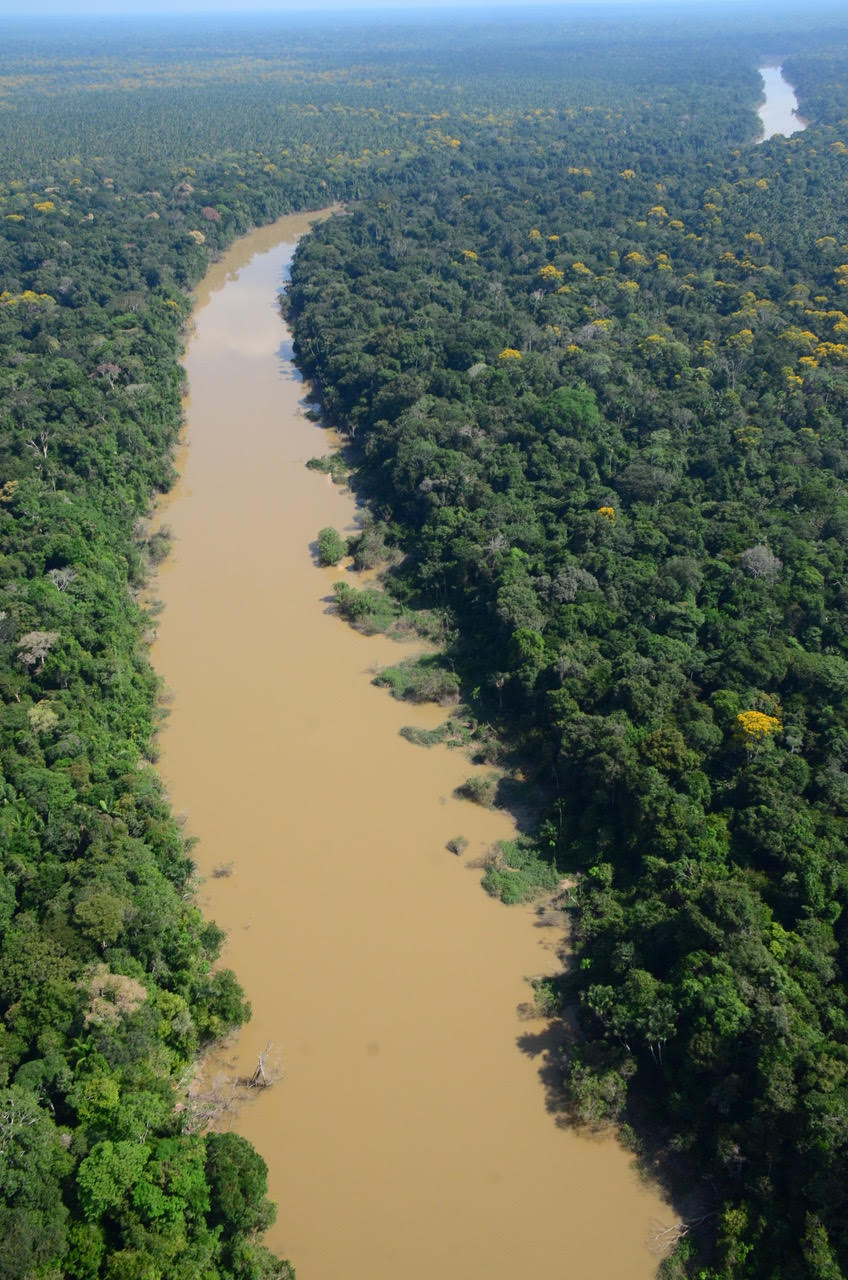Indigenous Peoples Were Stewards of the Western Amazon
Study Points to a History of Indigenous Sustainable Use of the Western Amazon Stretching Back 5,000 Years
June 7, 2021 News Release

An aerial photo of the Algodón River flowing through a forest of the Amazon Basin in the remote northeastern corner of Peru. Credit: Álvaro del Campo.
Smithsonian scientists and their collaborators have found new evidence that prehistoric Indigenous peoples did not significantly alter large swaths of forest ecosystems in the western Amazon, effectively preserving large areas of rainforests to be unmodified or used in sustainable ways that did not reshape their composition. The new findings are the latest in a long scientific debate about how people in the Amazon have historically shaped the rich biodiversity of the region and global climate systems, presenting new implications for how the Amazon’s biodiversity and ecosystems can be best conserved and preserved today.
In recent years, scientists’ understanding of the Amazon rainforest has been increasingly informed by a body of research that suggests the landscape was actively, intensively shaped by Indigenous peoples before the arrival of Europeans. Some studies ascribe the tree species that now dominate the forest to prehistoric human management and landscape engineering. Other work posits that when colonizers from Europe caused massive losses to Indigenous Amazonians with disease, slavery and warfare, the sudden interruption in landscape-scale manipulation resulted in so much forest regrowth that it caused a global drop in atmospheric carbon dioxide
that brought about a climactic shift that is known as the “Little Ice Age.”
Now a new study led by Smithsonian researchers, published June 7 in the journal
[iProceedings of the National Academy of Sciences], suggests that for at least the past 5,000 years, large areas of the rainforest in western Amazonia located away from the fertile soils near rivers were not periodically cleared with fire or subject to intensive land use by the Indigenous population before the arrival of Europeans.
The study, led by Smithsonian senior scientist emerita Dolores Piperno of the
National Museum of Natural History and the
Smithsonian Tropical Research Institute in Panama, is the latest entry in a nearly decade-long scientific debate over prehistoric human influence in the world’s largest rainforest.
More:
https://www.si.edu/newsdesk/releases/indigenous-peoples-were-stewards-western-amazon
